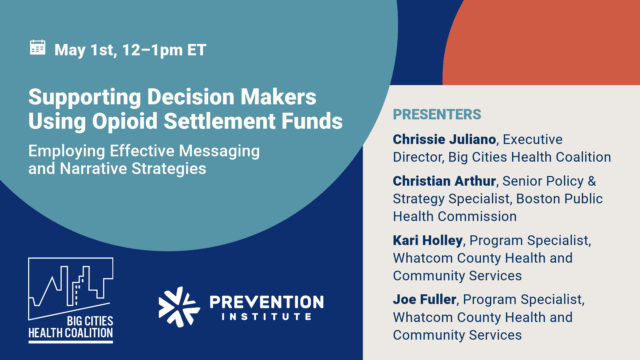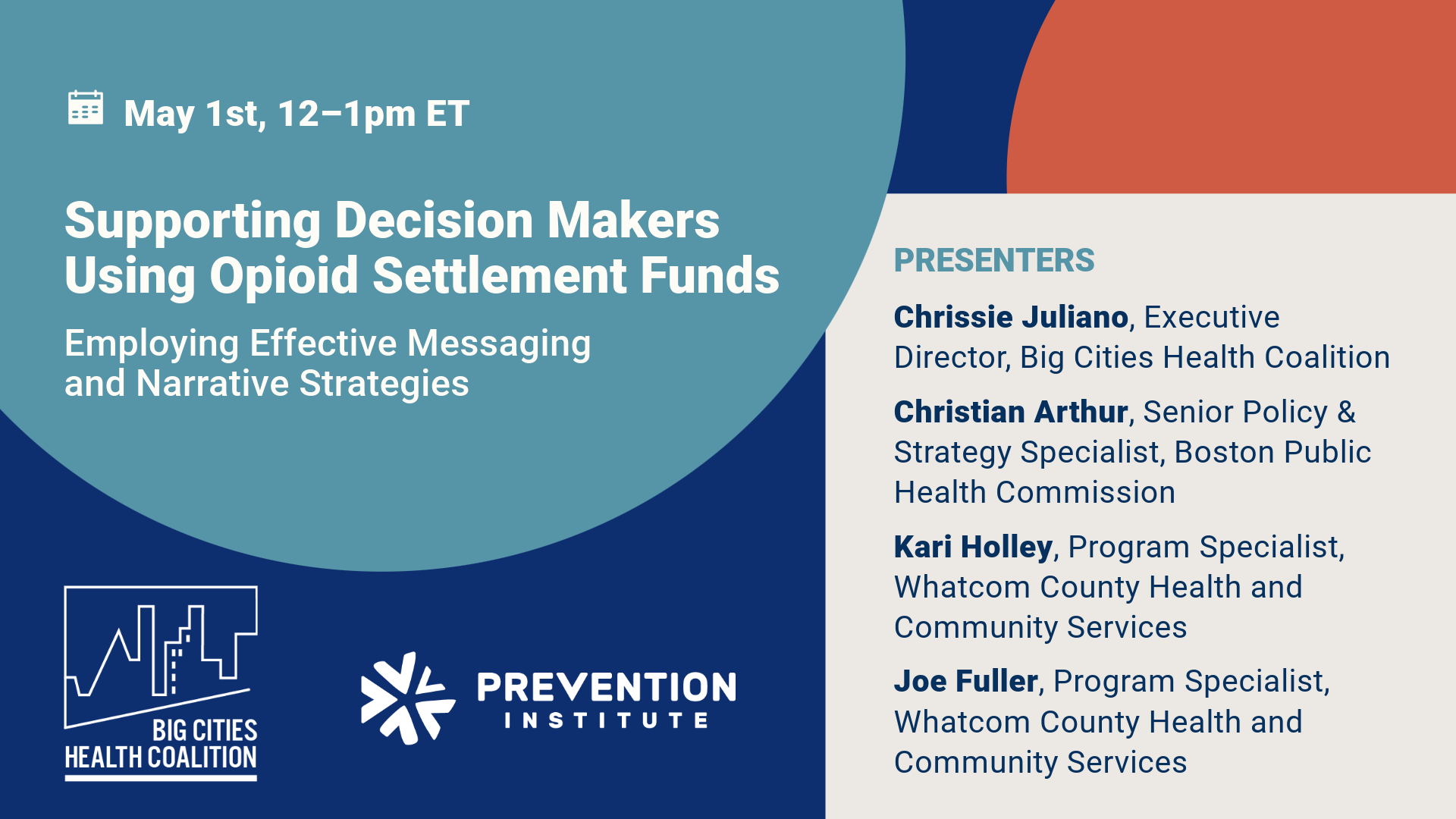Frontline Blog
Webinar recap: opioid settlement funds & messaging strategies
June 2025

In spring 2025, Big Cities Health Coalition and Prevention Institute launched the second installment of the Supporting Decision Makers Using Opioid Settlement Funds* webinar series. The series supports state and local decision- and policymakers as they make strategic investments of opioid settlement funds.
Opioid settlement funds in the US, which by mid-2025 amounted to over $50 billion1, have the potential to make a monumental difference in the ongoing overdose epidemic. For local, state, and tribal governments, this funding provides a historic opportunity to meaningfully invest in public health interventions that prevent overdose and addictions, and ultimately, save lives.
Some decision-makers may not be used to applying a public health lens to the funding allocation process. This webinar therefore offers specific messaging strategies to help decision-makers “make the case” for evidence-based investment of settlement funds.
Using communication tools to guide settlement spending
On a recent webinar, speakers from the Big Cities Health Coalition, Boston Public Health Commission, and Whatcom County, Washington Health and Community Services shared numerous insights from their experience communicating with decision- and policymakers, including findings from messaging research, effective communication strategies, and core themes that support policy goals.
Chrissie Juliano, Executive Director of Big Cities Health Coalition, shared highlights from the most recent round of messaging research on harm reduction. Overall, city residents broadly support harm reduction approaches (such as naloxone, fentanyl test strips, and medication-assisted treatments like methadone). The most effective messages from the polling highlight the need for both short- and long-term solutions to the current drug and overdose crisis. Residents also reacted positively to messages that frame harm reductions as saving lives and as a bridge to recovery once an individual is ready to receive help. Tying fact-based messaging around harm reduction to personal stories from people with lived experience can help to strengthen overall support.
Christian Arthur, Senior Policy and Strategy Specialist at the Boston Public Health Commission, described how their department created four distinct messaging frames to help shape the local decision-making process. These messaging frames include setting realistic expectations about the legal parameters of the funds; emphasizing data and using evidence-based programming; calling out the needs of those most impacted and disproportionately burdened by the epidemic; and reminding decision-makers and partners about the importance of being accountable to the community and legal requirements of the funding.
Kari Holley and Joe Fuller, Opioid Prevention Specialist and Program Specialist respectively from Whatcom County Health and Community Services, discussed the messaging approaches that have complemented their work on the ground. When communicating with both decision-makers and community stakeholders, Whatcom County emphasizes the importance of research and the factors that impact substance use prevention (i.e., age of onset, early trauma, etc.), the importance of data and how it is used to make decisions, which services are effective and how this effectiveness is evaluated, and cost-savings in terms of money, lives, and what is at stake if these services are not provided.
During the panel discussion, speakers delved into topics related to building collective narratives to shift policy, effective responses to pushback on public health approaches, and finding alignment across jurisdictional regions.
Notes
*This project is supported by Cooperative Agreement Number NU38PW000033 awarded to Big Cities Health Coalition and funded by the Centers for Disease Control and Prevention. Its contents are solely the responsibility of the authors and do not necessarily represent the official views of the Centers for Disease Control and Prevention or the Department of Health and Human Services.
[1] National Academy for State Health Policy. (2024, May 17). State opioid settlement spending decisions.
